The School of Electrical and Information Engineering began in 1953 with the introduction of electrical engineering courses in the school and the establishment of the Electrical Engineering Teaching and Research Group in 1958. At present, the College has enrolled in five undergraduate majors. In 1977, 2001 and 2002, it established the majors of Automation, Electrical Engineering and its Automation, and Computer Science and Technology, and in 2006, it abolished the department and established the College of Electrical and Information Engineering.
There are 72 teachers in the school, including 10 professors, 2 doctoral supervisors and 60% of teachers with doctoral degrees. After more than 60 years of construction, the school has a master's degree in Control Science and Engineering, and is recruiting PhDs and Postdoctoral in the discipline "Intelligent Construction Engineering". It has a complete talent training system of "undergraduate, master's degree, doctor's degree and postdoctoral degree". The school has “National Virtual Simulation Teaching Centre for Smart City”, “Beijing Key Laboratory for Robotics Bionics and Function Research”, “Beijing Key Laboratory for Research on Intelligent Processing Methods of Big Data in Construction”, and is shortlisted for the construction of Beijing Advanced Innovation Center of “Future Urban Design”, “Intelligent Robots and Systems” and “The future image”.
In recent years, the school has undertaken a series of key and surface projects of the National Natural Science Foundation of China, National Key R&D-Related (sub) Projects, and important projects in Beijing, involving research fields such as smart cities, national power grids, and the construction of the "Science and Technology Winter Olympics". The school has applied for more than 100 invention patents, and has received more than 10 awards for teaching and research achievements at provincial and ministerial level, including the Second Prize of National Science and Technology Progress and the Natural Science Prize of the Ministry of Education.
Department
Automation
In the Department of Automation, there are 13 full-time academic staff members, including 3 professors and 8 associate professors, with over 260 undergraduate students and more than 100 graduate students.
In 1978, the major of electrified Automation of Urban Enterprises began to recruit students, and it was renamed as Automation in 1998.In 2006, it was approved as the second-level discipline master's program of Control Theory and Control engineering. In 2008, it was rated as the characteristic specialty construction point of Beijing. In 2010, it was approved as the first-level discipline master's program of Control Science and Engineering. Since 2012, it has participated in the National Special Needs Doctoral Talents Training Program of "Theory and Technology of Architectural Heritage Preservation". In 2020, Automation major has been rated as the first-class major construction point in Beijing.
In the future, Department of Automation will stick to the excellent spirits of BUCEA and adhere to fine traditions of its predecessors. Regarding discipline construction and development as principal line, the school will stick to the educational ideas of cultivating broad caliber inter-disciplinary talents with thick foundation, thus performing its own responsibility, and contributing its share to the country and social service with the joint efforts of teachers and students.
With the development of BUCEA, Department of Automation enjoys a high reputation in the fields of control, system engineering, pattern identification and system intelligence at home. Its scientific research mainly involves following fields, such as complex system control theories, decision-making analysis and decision support, intelligent control and robots, integrated control of computers and network technology, information detection and identification, artificial intelligent and so on. In recent ten years, the Department has undertaken and accomplished more than 30 scientific research projects of the nation and companies, with scientific research funds constantly increasing. It also has obtained dozens of national patent for invention.
Electrical Engineering and Automation
The major of Electrical Engineering and Automation has a team of 9 professional teachers. Most teachers have doctoral degrees and come from famous universities, Including six associate professors and three lecturers. The knowledge and age structure of the teaching team is reasonable. Ma Hongyan was awarded the title of Distinguished Teacher of BUCEA.
Teachers have high scientific research ability in this major. In recent years, they have presided over and participated in several projects, such as the National Natural Science Foundation of China, the Natural Science Foundation of Beijing Municipality, the Plan Project of Beijing Municipal Science and Technology Commission, and the General Project of Beijing Municipal Education Commission, Gained remarkable scientific research achievements.
“Automatic Control Principle” is State-level excellent course in Department of Electrical Engineering. There are several Beijing and university-level excellent courses, Gained national awards for “National Electronic Design Competition” and “Challenge Cup Competition” many times, teaching achievements are very good.
Computer Science and Technology
The major of computer science and technology was established in 1999. There are 24 full-time teachers, 19 of whom have senior titles, and 70% have doctor's degree. There are 377 students, including 327 undergraduates and 50 postgraduates. The major has successively carried out the "major enrollment", "double training plan" and "external training plan" in 2015, as well as the "artificial intelligence (AI) experimental class" enrollment reform in 2018, cultivating many outstanding graduates. In 2016, the major has made outstanding achievements in the evaluation of undergraduate computer science and technology in Beijing municipal colleges and universities, and won the first place in the evaluation of specialty characteristics in Beijing municipal colleges and universities. In 2019, it was approved to be the first-class major construction in Beijing municipal level.
The major has presided over more than 10 key projects, general projects, and youth projects of the National Natural Science Foundation of China. It has won the Second Prize of National Science and Technology Progress Award, the Second Prize of Natural Science of the Ministry of Education, and the Second Prize of Wu Wenjun Artificial Intelligence Natural Science Award, etc.
The major has undertaken several national, provincial and university level teaching and research projects, and has been approved by many Beijing Outstanding Teaching Team, High-level Innovation Team and Beijing Teaching Achievement Awards.
Building Electrical and Intelligent
The Department of Building Electricity and Intelligence has 9 full-time teachers, including 2 professors, 2 associate professors, 5 lecturers and the proportion of doctoral degree is 100%. The department is mainly responsible for teaching the undergraduate courses of this major and the platform courses of the whole university. In addition, the department also undertakes the task of training master's degree in control science and engineering and mechanical disciplines.
In recent years, teachers of the Department of Electrical and Mechanical Engineering have presided over and completed several vertical and horizontal research projects, such as sub-projects of the National Key Research and Development Program, national funds, and municipal funds, etc. They have also presided over or participated in the formulation (revision) of 6 national and local standards, won the Second Prize of Beijing Science and Technology Progress, published more than 140 papers, published more than 10 monographs and textbooks, and obtained more than 20 patents.
The teachers of the Department of Building and Electricity are actively involved in teaching reform and research, and have won the First Prize of Beijing Teaching Achievement, the Second Prize of the University Teaching Excellence Award, the Second Prize, and the Third Prize of the University Basic Teaching Skills Competition, etc. They have guided students to participate in the joint graduation design of building electrical and intelligent schools, the Building Information Modeling (BIM) Application Skills Competition and the National Student Intelligent Building Engineering Practical Skills Competition, and have won many awards.
Artificial Intelligence
The major of artificial intelligence is oriented to the national major strategic development and the needs of smart city construction. It aims to cultivate students to master the basic theory, basic methods, and application technology of artificial intelligence, to be familiar with the interdisciplinary knowledge related to artificial intelligence, to understand the frontier development status and trend of artificial intelligence major, and to have outstanding scientific literacy, innovation ability, good engineering practice ability, systematic thinking ability and international vision. After graduation, students can become "practical and compound" AI high-level professionals engaged in AI related work in government governance, life science, health care, teaching and education, business management and other technical fields.
In the aspect of scientific research, our faculty mainly carry out the research of intelligent information processing based on computer vision and pattern recognition, combined with the frontier of artificial intelligence, our faculty focus on machine vision information deep neural network modeling, human-computer natural interaction methods and technologies, biometrics and various image processing methods and technologies. Our faculty have been undertaking multiple national scientific research projects and enterprise entrusted projects,publishing more than 50 papers in international journals and international conferences, being authorized more than 10 national invention patents.
The Department of artificial intelligence continuously optimizes the course offered and content of courses, and actively explores the talent training mode. The main measures include: implementing the "tutorial system" to provide professional guidance to students; using online and offline mixed teaching to improve the teaching effect; strengthening the training of students’ innovation, practice and learning ability in after-school classes; adhering to the project-driven and problem-oriented, Scientific research nurtures Teaching to train students’ comprehensive ability to analyze and solve problems. These measures will help students to be competent for future AI related work and students’ sustainable development.
Experimental Teaching Center
The Building Electrical and Intelligence Experimental Teaching Center of the School of Electrical and Information Engineering, Beijing University of Civil Engineering and Architecture is integrated by the school’s electrical and information professional basic laboratory and related professional laboratories. In 2007, it became the school’s first Beijing Experimental Teaching Demonstration Center. The center adheres to the experimental teaching concept of "improving student quality, taking professional knowledge education as the basis, focusing on practical ability training, and taking the cultivation of innovative spirit as the core", and establishes the main line of "basic-innovation-engineering practice" Experimental teaching system.
The center has an area of 2252 square meters and a total equipment value of 32.62 million yuan; it undertakes the experimental teaching of 4 majors of the School of Electrical and Information Engineering and the other 22 professional electrical and information courses of the school. It has opened 348 experimental projects and taught 123,900 people each year ·class hours.
Faculty

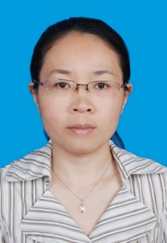
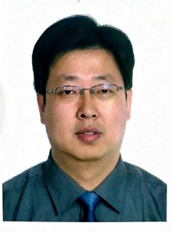
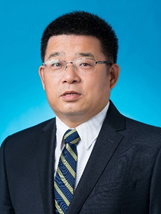

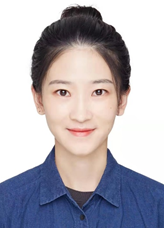


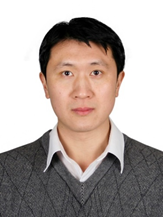
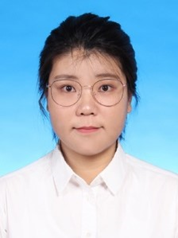
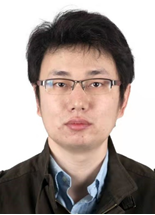

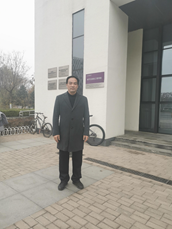


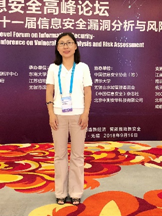
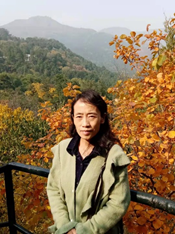
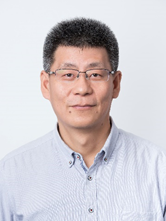
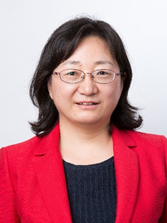





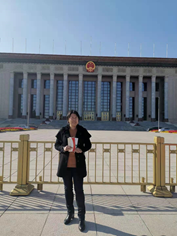




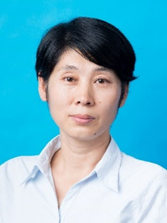
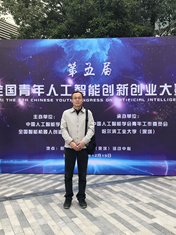
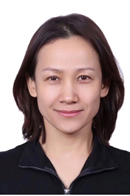


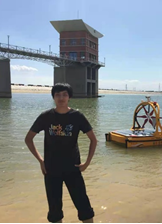


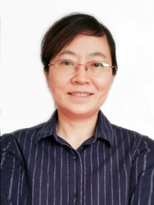
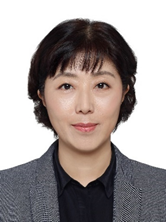






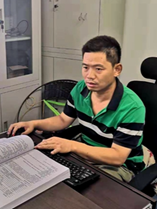


Courses
Automation
Course Type |
Course Attribute |
Course Title |
Semester |
Total Class Hours |
Major Academic Subjects |
Compulsorys |
Advanced Mathematics A(1) |
1 |
92 |
Advanced Mathematics A(2) |
2 |
84 |
||
Linear Algebra |
1 |
40 |
||
Theory of Probability and Statistics (B) |
3 |
48 |
||
College physic A(1-2) |
2-3 |
112 |
||
Physics Experiment (1-2) |
3-4 |
60 |
||
Descriptive Geometry B |
1 |
36 |
||
C Programming |
2 |
32 |
||
Complex Functions and Integral Transformations |
3 |
48 |
||
Data Structure |
3 |
40 |
||
Optional |
Engineering Economics |
4 |
32 |
|
College Chemistry |
2 |
40 |
||
Engineering Mechanics B |
3 |
48 |
||
Engineering Drawing B |
2 |
36 |
||
Fundamental of VB Programming |
3 |
32 |
||
Database Technology and its Application |
5 |
32 |
||
Professional Core |
Compulsorys |
Circuit Principle |
3 |
80 |
Analog Electronics Technology |
4 |
48 |
||
Digital Electronics Technology |
4 |
48 |
||
Electrical Machine and Electrical Drive |
4 |
64 |
||
Automatic Control Theory |
5 |
64 |
||
Detect Technology and Process Control |
5 |
56 |
||
Motion Control System B |
6 |
40 |
||
Robot Control Technology |
5 |
32 |
||
Artificial Intelligence Foundation |
6 |
32 |
||
Building Intelligent System |
6 |
32 |
||
Optional |
Engineering Electromagnetic Field |
4 |
32 |
|
Machine Foundation |
4 |
32 |
||
Machine Learning |
6 |
48 |
||
Power System Analysis |
5 |
40 |
||
Building Architecture |
5 |
32 |
||
JAVA Programming |
5 |
32 |
||
Python Programming |
5 |
32 |
||
Control System Simulation and Matlab Application |
5 |
32 |
||
Algorithm of Optimization |
4 |
32 |
||
Building Power Supply |
6 |
64 |
||
Building Lighting |
6 |
32 |
||
Power Electronics Technology |
5 |
32 |
||
Practice |
Compulsorys |
Military Theory |
1 |
36 |
Military Training |
1 |
112 |
||
Situation and Policy(5-8) |
5-8 |
32 |
||
Practice of Programming |
2 |
20 |
||
Science and Technology Innovation Practice Week |
2 |
20 |
||
Electronic Technology Practice |
3 |
20 |
||
Course Design for Electronic Technology |
4 |
20 |
||
Course Design for MCU |
5 |
40 |
||
Integrated Experiment for PLC and Automatic Control System |
6 |
40 |
||
Course Design for Artificial Intelligence |
6 |
20 |
||
Construction Management and Budgeting |
6 |
20 |
||
Course Design for Computer Control |
6 |
40 |
||
Course Design for Lighting |
7 |
40 |
||
Specialty Practice |
7 |
40 |
||
Graduation Design |
8 |
160 |
||
Extracurricular |
Electrical Engineering and Automation
Course Type |
Course Attribute |
Course Title |
Semester |
Total Class Hours |
Major Academic Subjects |
Compulsorys |
Advanced Mathematics A(1) |
1 |
92 |
Advanced Mathematics A(2) |
2 |
84 |
||
Linear Algebra |
1 |
40 |
||
B Theory of Probability and Statistics (B) |
3 |
48 |
||
College physic A(1-2) |
2-3 |
112 |
||
Descriptive Geometry B(Construction) |
1 |
36 |
||
C Programming |
2 |
64 |
||
Complex Functions and Integral Transformations |
3 |
48 |
||
Optional |
Construction Engineering Drawing B |
2 |
48 |
|
Database Technology and its Application |
2 |
36 |
||
Theoretical Mechanics (B) |
3 |
40 |
||
Mechanics of Materials (B) |
4 |
52 |
||
Engineering Economics |
4 |
52 |
||
Building Architecture |
5 |
32 |
||
VC Programming |
5 |
32 |
||
Professional Core |
Compulsorys |
Circuit Principle |
3 |
32 |
Automatic Control Theory |
3 |
80 |
||
Power Electronics Technology |
5 |
64 |
||
Power Systems Analysis |
5 |
32 |
||
Electric Drive Control System |
5 |
40 |
||
Electric Power Distribution and Supply for Building |
6 |
64 |
||
Major-Field Courses |
Compulsorys |
Analog Electronics |
4 |
48 |
Digital Electronics |
4 |
48 |
||
Electric Machines and Motor Drive |
4 |
64 |
||
Principle and Application of MCU |
5 |
32 |
||
Electric Control and Programmable Logic Controller |
5 |
48 |
||
Lightning and Grounding Technology in Building |
6 |
32 |
||
Relay Protection and Automation of Distribution Power System |
7 |
48 |
||
Elevator Control Technology |
7 |
32 |
||
Building Intelligent Systems |
6 |
32 |
||
Optional |
Engineering Electromagnetic Field |
4 |
32 |
|
Signals and System |
5 |
32 |
||
JAVA Programming |
5 |
48 |
||
Python Programming |
5 |
32 |
||
Robot Control Technology |
5 |
32 |
||
Building Lighting |
6 |
32 |
||
Building Environment Electromagnetic Compatible Technology |
7 |
32 |
||
New Technology for Building Electricity |
7 |
32 |
||
Practice |
Compulsorys |
Course Design for Electronic Technology |
4 |
40 |
Power Electronics Practice Training |
5 |
40 |
||
Comprehensive Practice Training of Electric Drive |
6 |
40 |
||
Comprehensive Practice Training of Power System |
6 |
20 |
||
Course Design for Power Supply and Lighting |
6 |
40 |
||
Elevator Practice Training |
7 |
20 |
||
Construction Management and Pre-budgeting Practice Training |
7 |
20 |
||
Specialty Practice |
7 |
40 |
||
Graduation Design |
8 |
160 |
Computer Science and Technology
Course Type |
Course Attribute |
Course Title |
Semester |
Total Class Hours |
Major Academic Subjects |
Compulsorys |
C Programming |
1 |
48 |
Data Mining and Case Analysis |
6 |
32 |
||
Optional |
Data Mining and Case Analysis |
6 |
32 |
|
Professional Core |
Compulsorys |
Discrete Mathematics |
3 |
48 |
Data Structure |
4 |
64 |
||
Database Principle and Application |
5 |
64 |
||
Principles of Computer Organization |
4 |
64 |
||
Computer Network Infrastructure |
5 |
64 |
||
Operating System |
5 |
64 |
||
Major-Field Courses |
Compulsorys |
Computer Graphics |
6 |
40 |
Digital Logic |
3 |
32 |
||
Compiler Principle |
6 |
24 |
||
Linux Programming Technique |
6 |
32 |
||
Software Engineering |
6 |
32 |
||
Software Testing and Management |
6 |
40 |
||
Optional |
Big data analysis and Application |
7 |
24 |
|
Web Systems and Technology |
5 |
32 |
||
Python Programming |
5 |
32 |
||
Image Processing and Deep Learning |
7 |
32 |
||
Practice |
Compulsorys |
The Practice of Programming |
2 |
20 |
Integrated Experiment of the Data Structure |
3 |
20 |
||
Integrated Experiment of software development |
3 |
40 |
||
Integrated Experiment of software engineering |
6 |
40 |
Building Electrical and Intelligent
Course Type |
Course Attribute |
Course Title |
Semester |
Total Class Hours |
Major Academic Subjects |
Compulsorys |
Advanced Mathematics A(1) |
1 |
92 |
Advanced Mathematics A(2) |
2 |
84 |
||
C Programming |
2 |
64 |
||
College physics(1-2) |
2-3 |
112 |
||
Optional |
Engineering Drawing B |
2 |
36 |
|
Computer Graphics |
6 |
48 |
||
Professional Core |
Compulsorys |
Circuit Theory |
3 |
80 |
Analog Electronics |
4 |
56 |
||
Digital Electronics |
4 |
48 |
||
Principles of Automatic Control |
5 |
48 |
||
Computer Principle and Application |
5 |
48 |
||
Computer Networks and Communications |
5 |
32 |
||
Major-Field Courses |
Compulsorys |
Intelligent Building Environment |
5 |
32 |
Building Information Facilities System |
5 |
32 |
||
Building Automation |
6 |
32 |
||
Building Power Supply and Distribution and Electrical Safety |
6 |
64 |
||
Public Security Technology |
6 |
24 |
||
Buildings Internet of Things |
6 |
24 |
||
BIM Technology and Application |
7 |
32 |
||
Building Lighting |
7 |
32 |
||
Optional |
Introduction of Artificial Intelligence |
4 |
40 |
|
Image Processing Technology |
5 |
24 |
||
Signals and Systems |
6 |
24 |
||
Practice |
Compulsorys |
Course Design for Building Information Facilities System |
5 |
20 |
Course Design for Computer Principle and Application |
5 |
20 |
||
Course Design for Public Security Technology |
6 |
20 |
||
Course Design for Building Automation System |
7 |
20 |
||
Intelligent System Integration Training |
7 |
20 |
||
Course Design for Building Power Supply and Distribution and Lighting |
7 |
20 |
||
Specialty Practice |
7 |
80 |
||
Graduation Design |
8 |
170 |
Artificial Intelligence
Course Type |
Course Attribute |
Course Title |
Semester |
Total Class Hours |
Major Academic Subjects |
Compulsorys |
Advanced Mathematics A(1) |
1 |
80 |
Advanced Mathematics A(2) |
2 |
80 |
||
Linear Algebra |
1 |
32 |
||
A Theory of Probability and Statistics (A) |
3 |
64 |
||
College physics B(1-2) |
2-3 |
96 |
||
Physics Experiment(1-2) |
3-4 |
60 |
||
Descriptive Geometry B |
1 |
36 |
||
Optional |
Mechanics of Materials (B) |
4 |
44 |
|
Engineering Economics |
3 |
16 |
||
Scientific and Technological Literature Retrieval |
3 |
16 |
||
Complex Functions and Integral Transformations |
2 |
32 |
||
Professional Core |
Compulsorys |
Discrete Mathematics |
1 |
48 |
Data Structure and Algorithm |
2 |
64 |
||
Fundamentals of Artificial Intelligence |
3 |
32 |
||
Principles of Computer Organization |
4 |
48 |
||
Machine Learning |
5 |
32 |
||
Database Principle and Application |
6 |
48 |
||
Major-Field Courses |
Compulsorys |
Specialty Outline |
1 |
8 |
C Programming |
1 |
32 |
||
Python Programming |
2 |
32 |
||
Digital Logic |
3 |
32 |
||
Circuit and Electronic Technique |
3 |
48 |
||
Data Mining |
4 |
32 |
||
Optimization algorithm |
4 |
32 |
||
Stochastic Processes |
4 |
32 |
||
pattern recognition |
5 |
32 |
||
Operating System |
5 |
32 |
||
Introduction to Robotics |
5 |
32 |
||
Distributed and Parallel Computing |
5 |
32 |
||
Knowledge Representation and Processing |
6 |
32 |
||
Computer Vision and Image Processing |
6 |
32 |
||
Control Theory and Technology |
6 |
32 |
||
Neural Network and Deep Learning |
7 |
32 |
||
Multi-Agent System |
7 |
32 |
||
Optional |
Natural Language Processing |
7 |
24 |
|
Big data analysis and Application |
7 |
24 |
||
Principle and Application of MCU |
5 |
24 |
||
Embedded Systems |
6 |
24 |
||
Robot Control Technology |
7 |
24 |
||
Object-Oriented Programming |
4 |
24 |
||
Java Programming |
5 |
24 |
||
Web Systems and Technology |
6 |
24 |
||
Mobile Application Systems Development |
7 |
24 |
||
Computer Graphics |
5 |
24 |
||
Data Visualization |
6 |
24 |
||
Smart 3D Printing Technology |
7 |
24 |
||
Compiler Principle |
4 |
24 |
||
Software Engineering |
5 |
24 |
||
Linux Programming Technique |
6 |
24 |
||
Computer Network Infrastructure |
5 |
24 |
||
Building Internet of things |
6 |
24 |
||
Information System Security |
7 |
24 |
||
Bim and CIM Technology |
5 |
24 |
||
Practice |
Compulsorys |
The Practice of Programming |
2 |
20 |
Integrated Training of the Digital Logic |
3 |
20 |
||
Integrated Experiment of the Principles of Computer Organization |
4 |
20 |
||
Integrated Experiment of the Data Structure |
4 |
20 |
||
Deep Learning Practice |
7 |
40 |
||
Integrated Experiment of software development |
5 |
60 |
||
Machine learning practice |
5 |
20 |
||
Computer Vision System Development Practice |
6 |
40 |
||
Electronic Technology Practice |
2 |
20 |
||
Graduation Field Work |
7 |
80 |
||
Graduation Design (Thesis) |
8 |
180 |
||
Metalworking Practice |
2 |
40 |
||
Innovation Competition Training |
2 |
40 |
||
Integrated Experiment of Compiler Principle |
6 |
20 |
Control Science and Engineeri
Course Type |
Course Attribute |
Course Title |
Semester | Total Class Hours |
Public Courses |
Marxism and Methodology of Social Science |
Spring |
18 |
|
Dialectics of Nature |
Spring |
18 |
||
Theory and Practice of Socialism with Chinese Characteristics |
Autumn |
36 |
||
Scientific and Technical English Writing |
Spring |
32 |
||
English |
Autumn |
48 |
||
Graduate Students' Academic Ethics and Academic Norms |
Autumn |
16 |
||
Scientific Research Paper Writing Guidance |
Spring |
16 |
||
Stress Coping and Healthy of Postgraduates |
Spring |
16 |
||
English Scientific Paper Writing and Academic Report |
Spring |
16 |
||
Business Course |
Spring |
16 |
||
History of Chinese Architecture——Yuan, Ming and Qing Dynasties and Folk House |
Spring |
16 |
||
History of Chinese Architecture—— Prehistory to the Song , Liao and Jin Dynasties |
Spring |
16 |
||
Optional |
Japanese |
Autumn |
48 |
|
Spoken English |
Spring |
32 |
||
Engineering Ethics |
Spring |
16 |
||
Intellectual Property |
Spring |
16 |
||
Information Retrieval |
Spring |
16 |
||
Graduate Students' Career Planning and Professional Ability Promotion |
Spring |
16 |
||
Mental Health and Emotion Regulation |
Autumn |
16 |
||
Credit Management |
Autumn |
16 |
||
Professional Modules |
CompulsorysOptional |
System Identification and Modeling |
Autumn |
32 |
Linear System Theory |
Autumn |
36 |
||
Theory of Matrices |
Autumn |
32 |
||
Stochastic Process |
Autumn |
32 |
||
Optimal Control |
Spring |
36 |
||
Machine Learning |
Autumn |
32 |
||
Computer Control System |
Spring |
32 |
||
Modern Detection Technology |
Spring |
32 |
||
Introduction for System Engineering |
Autumn |
32 |
||
Pattern Recognition |
Autumn |
32 |
||
Computational Biology |
Spring |
32 |
||
Advanced Control Theory and Its Application |
Spring |
32 |
||
Optimal Estimation |
Spring |
32 |
||
Modern Digital Signal Processing |
Autumn |
32 |
||
Technology of Networked Measurement and Control |
Autumn |
32 |
||
Robot Control Technology |
Autumn |
32 |
||
Computer Vision and Image Processing |
Spring |
32 |
||
Artificial Intelligence |
Autumn |
40 |
||
Big Data Foundation and Network Programming |
Spring |
32 |
||
Intelligent Building Technology |
Autumn |
32 |
||
Algorithm Design and Analysis |
Spring |
32 |
||
Data Mining |
Autumn |
32 |
||
Renewable Energy Microgrid |
Spring |
32 |
||
Data Structure |
Autumn |
48 |
||
Building Information Model Technology |
Autumn |
16 |
||
Numerical Analysis |
Autumn |
48 |
||
Applied Mathematical Statistics |
Spring |
32 |
||
Optimal Method |
Spring |
32 |
||
Professional link |
Academic activities |
Spring |
0 |
|
Professional Practice (Academic Degree) |
Spring |
0 |
Robotic Engineering
Course Type |
Course Attribute |
Course Title | Semester |
Total Class Hours |
Public Courses |
Compulsorys |
Marxism and Methodology of Social Science |
Spring |
18 |
Dialectics of Nature |
Spring |
18 |
||
Theory and Practice of Socialism with Chinese Characteristics |
Autumn |
36 |
||
Scientific and Technical English Writing |
Spring |
32 |
||
English |
Autumn |
48 |
||
Academic Ethics and Academic Norms |
Autumn |
16 |
||
Scientific Research Paper Writing Guidance |
Spring |
16 |
||
Stress Coping and Healthy of Postgraduates |
Spring |
16 |
||
English Scientific Paper Writing and Academic Report |
Spring |
16 |
||
Business Course |
Spring |
16 |
||
History of Chinese Architecture——Yuan, Ming and Qing Dynasties and Folk House |
Spring |
16 |
||
History of Chinese Architecture—— Prehistory to the Song , Liao and Jin Dynasties |
Spring |
16 |
||
Engineering Ethics |
Spring |
16 |
||
Intellectual Property |
Spring |
16 |
||
Information Retrieval |
Spring |
16 |
||
Optional |
Japanese |
Autumn |
48 |
|
Spoken English |
Spring |
32 |
||
Graduate Students' Career Planning and Professional Ability Promotion |
Spring |
16 |
||
Mental Health and Emotion Regulation |
Autumn |
16 |
||
Credit Management |
Autumn |
16 |
||
Professional Modules |
Compulsorys |
System Identification and Modeling |
Autumn |
32 |
Linear System Theory |
Autumn |
36 |
||
Theory of Matrices |
Autumn |
32 |
||
Pattern Recognition |
Autumn |
32 |
||
Machine Learning |
Autumn |
32 |
||
Optimal Control |
Spring |
36 |
||
Artificial Intelligence |
Autumn |
40 |
||
Computer Vision and Image Processing |
Spring |
32 |
||
Algorithm Design and Analysis |
Spring |
32 |
||
Optional |
Computer Control System |
Spring |
32 |
|
Advanced Control Theory and Its Application |
Spring |
32 |
||
Stochastic Process |
Autumn |
32 |
||
Optimal Estimation |
Spring |
32 |
||
Modern Detection Technology |
Spring |
32 |
||
Modern Digital Signal Processing |
Autumn |
32 |
||
Introduction for System Engineering |
Autumn |
32 |
||
Technology of Networked Measurement and Control |
Autumn |
32 |
||
Robot Control Technology |
Autumn |
32 |
||
Big Data Foundation and Network Programming |
Spring |
32 |
||
Data Structure |
Autumn |
48 |
||
Intelligent Building Technology |
Autumn |
32 |
||
Building Information Model Technology |
Autumn |
16 |
||
Computational Biology |
Spring |
32 |
||
Data Mining |
Autumn |
32 |
||
Renewable Energy Microgrid |
Spring |
32 |
||
Numerical Analysis |
Autumn |
48 |
||
Applied Mathematical Statistics |
Spring |
32 |
||
Optimal Method |
Spring |
32 |
||
Professional link |
Compulsorys |
Academic activities |
Spring |
0 |
Professional Practice (Professional degree) |
Spring |
0 |